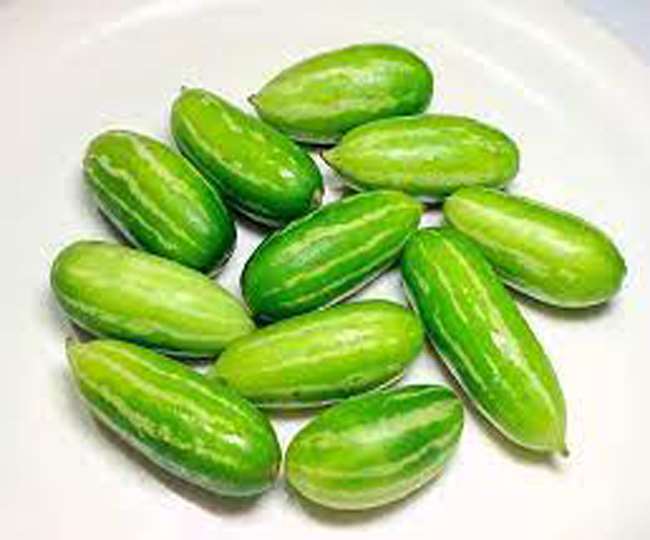The Open Magazine
Delicious Keto Recipes for a healthy lifestyle
Looking for health Benefits of Eating Kundri IVY Gourd? In this post, We explore seven scientifically-proven advantages of consuming kundri and how it can benefit you. Kundri, also known as Ivy Gourd, is a powerhouse of nutrition that can provide a wide range of health benefits.
From its impressive nutrient’ content to its potential medicinal properties, there is plenty of reason why this vegetable should be part of your diet. Here, We all take a look at seven scientifically proven advantages of eating kundri/ivy gourd.
Benefits of Eating Kundri IVY Gourd
1. Kundri, or ivy gourd, is a plant known for its impressive nutritional profile and positive effects on health.
2. Specifically, eating kundri can provide several benefits, including improved digestion and protection against oxidative damage caused by free radicals.
3. In addition, this vegetable may help reduce inflammation and improve skin health.
4. It may also have potential Anticancer properties & can even help protect your heart health.
Side Effects of Ivy:
1. Although the health benefits of eating Kundri are many, It is important to remember that consuming large amounts of this vegetable can have some side effects.
2. These include potential allergic reactions in people with sensitivity to Ivy Gourds & its related plants.
3. Therefore, if you are unsure about your ability to tolerate Kundri, start with a small amount and increase gradually.
4. It is also important to note that consuming too much kundri may lead to digestive issues such as constipation or indigestion.
5. Pregnant Women need to be careful When adding this vegetable to their diet, as it may contain compounds that can interfere with fetal growth.
6. Consult your doctor if you are pregnant or planning on becoming pregnant before adding kundri/ivy gourd into your diet regularly.
Who Benefits from Eating Kundri?
1. Kundri can be beneficial to nearly anyone, however, certain people may particularly benefit, from this nutritious vegetable.
2. These include children, older individuals and pregnant women due to the many vitamins and minerals it contains.
3. It is also beneficial for an individual with an iron deficiency as kundri is a good source of iron.
4. Individuals on weight loss diets will find it helpful as an excellent low-calorie food that satisfies hunger without loading up on calories.
5. However, as mentioned before, talk to your doctor or nutritionist before adding kundri regularly into your diet to ensure That you are not at risk of any health issues.
When Is the Best Time to Eat Kundri?
1. Kundri can be eaten all year round, but the best time to enjoy this nutritious vegetable is during the summer months when it is in season.
2. During this period, fresh kundri is abundant and contains more of it is beneficial vitamins, such as Vitamin C.
3. Additionally, freezing kundri may help protect their nutritional value and make them available for consumption during the winter.
4. Eating Kundri not only provides a nutritious & flavour-packed addition to any meal but also brings an abundance of benefits.
5. The vegetable is a rich source of various nutrients including Vitamin C, dietary fibre, beta-carotene, calcium and iron.
6. It also contains antioxidants which help protect cells from oxidative damage caused by prolonged exposure to environmental stressors.
7. Moreover, consuming kundri can lower cholesterol levels in the body while reducing inflammation of the Digestive tract.
Why Is Eating Kundri Beneficial?
1. Kundri may offer a host of health benefits from boosting immunity to aiding digestion and managing diabetes.
2. The vegetable is particularly high in Vitamin C & antioxidant compounds, Other essential minerals and vitamins such as Vitamin B6, riboflavin, magnesium, potassium, manganese, and iron.
3. These nutrients can help support the body’s overall health and well-being.
4. Kundri is also low in calories and a good source of dietary fibre, which can help support appetite control and regularity.
5. Ivy gourd contains different types of nutrients and antioxidants as it plays major role in the health related issues which includes the immunal support of ivy gourd during the pregnancy.
6. The vegetable contains a unique compound known as cucurbitacin, which has anti-allergenic, antiviral, anti-inflammatory, & anti-cancer properties that may further reduce chronic disease risk.
7. Additionally, Kundri’s high antioxidant content may help reduce oxidative stress in the body, protecting cells from damage.
8. Eating kundri regularly’ can thus help improve overall physical health and well-being.
